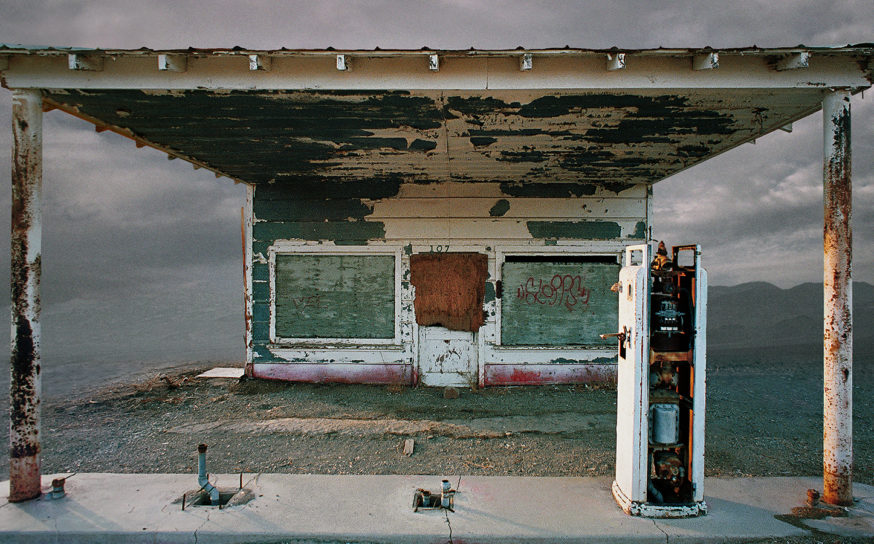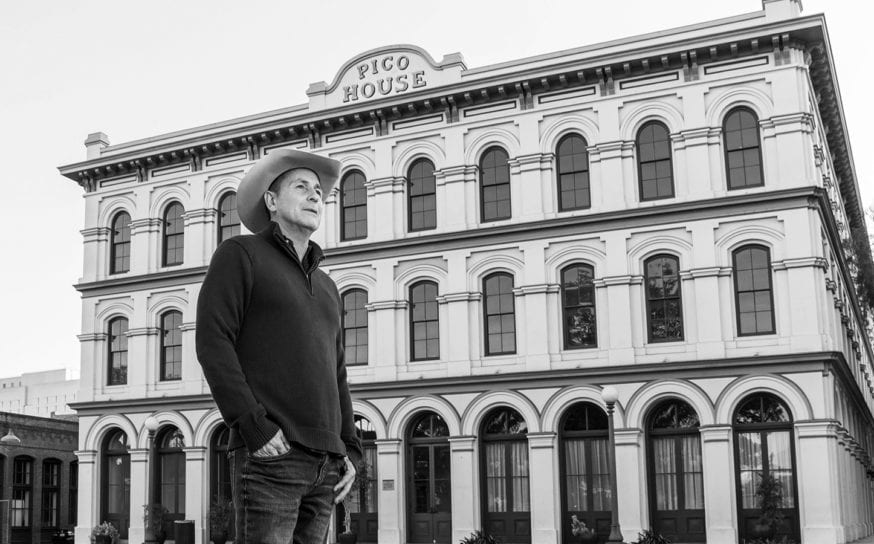LA Galaxy Player Baggio Hušidić Has Found Refuge and Opportunity in the United States
-
Posted onMay 31, 2017
-
CategoryExperiences
In the mid-1990s a young Baggio Hušidić escaped conflict and war in his home country of Bosnia and found both refuge and opportunity here in the United States. Now 29, he plays professional soccer for the LA Galaxy and calls Manhattan Beach home with his wife and newborn child. His is a story of struggle and soccer—two powerful and personal forces that shaped his allegiance to hard work and discipline, both on and off the field.


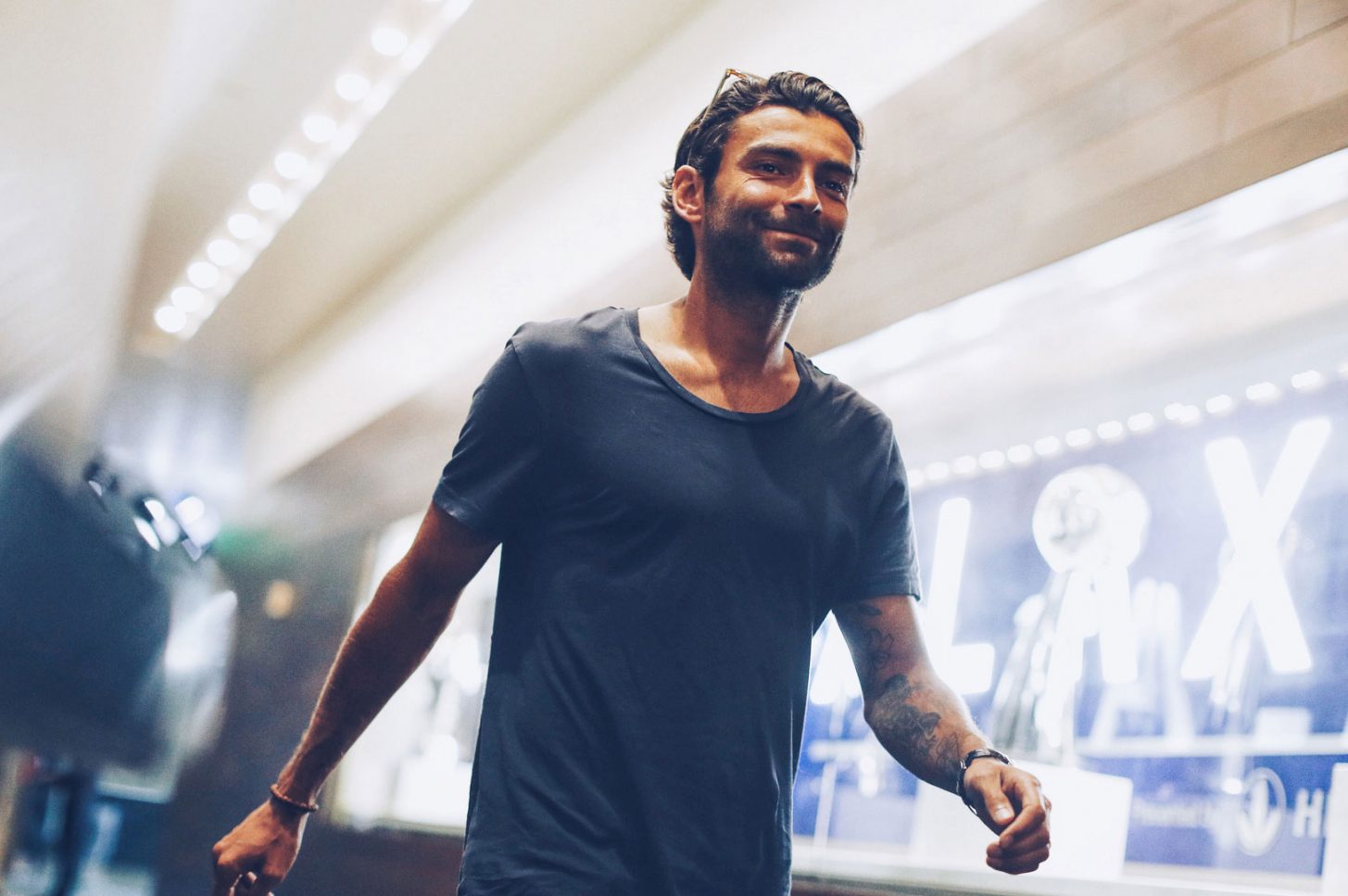
When Baggio Hušidic´ talks of childhood, he speaks about the “before.” The time before the Bosnian conflict beganin 1992. The time before the refugee camp in southern Croatia. And the time before he and his family fled toGermany to start anew.
Baggio was young—only around 5, he says—when the war began. But he recalls details of the conflict—anti-personnel mines buried in school yards, lost fingers in roadside ditches, and meals of powdered milk and bread—with complete clarity.
He speaks calmly, almost matter-of-factly, about what he can remember. These are simple facts for Baggio—facts of suffering and perseverance that gather around the before and after—the times of instability and growth, in Baggio’s memory. These are facts that have helped Baggio forge a constructive and positive personal identity…facts that have helped him achieve success.
After the start of the war and during his time in a refugee camp, he says, “It wasn’t really childhood.” But his childhood exists in that small window before the war—during his early years in Velika Kladuša in Bosnia and Herzegovina.

And it was during this time that the current LA Galaxy midfielder was introduced to soccer. Soccer, as well as the love and support of his family, allowed Baggio to keep his eyes on the future—to stay focused, keep working and keep advancing with his professional soccer career.
There was pain, but the years of instability and doubt have helped Baggio understand the importance of hard work, honesty and, above all, simply moving forward. “All the suffering I’ve done through my life, it was all worth it,” he says.
Baggio was born in 1987 in northwestern Bosnia and Herzegovina. His father, Zarif, was a former professional soccer player, and he named his son after the famed Italian soccer star Roberto Baggio. Life was stable. His parents were successful professionals—both his father and mother, Zemira, were accountants.
Baggio recalls playing soccer often with his older brother, Alen, and cousins. “That’s all we did—play soccer. We would always be outside in the forests, streets and hills,” says Baggio.
When he thinks of the “before,” he says, there are certain odd details that elude him. For example, he says he can’t remember what the inside of his family’s house looked like. But he does remember the trees of Velika Kladuša. He remembers how his dad built him a tree house.
The Bosnian conflict, which lasted until 1995, struck Bosnia and Herzegovina—formerly a republic of Yugoslavia—hard and cruelly. The fighting and subsequent ethnic cleansings would claim the lives of roughly 100,000 people—including many Bosniaks, or Bosnian Muslims.
Baggio remembers hearing bombs inching toward the town—how each explosion would cause the walls of his family’s home to shake. Baggio and his family were forced to flee Velika Kladuša and made it to a refugee camp near the Croatian border. He notes that later on they learned their home had been bombed.

As a child, he says, there wasn’t much he could do in the camp. Mines were scattered throughout the countryside; he couldn’t wander off to play soccer with friends. So he copied the environment around him.
“As kids, we would play war against other refugee camps,” he says. They’d scrounge up castoff weapons—he remembers finding a bazooka once—and pretend-fight other children. “That was our life, following the surrounding environment.”
His parents had to give up everything when they left their hometown, and their time in the camp is something that the family rarely discusses together. Zarif eventually got the family out of the camp and into Split, a coastal town in Croatia, where they hid for six months.
When the family first arrived in the town, Baggio remembers how his mother kept both him and his brother very close. “My mom wouldn’t let go of our hands. She had such a strong grip,” he says.
Eventually the family made their way to Hamburg, Germany, once the government provided housing to a select number of refugees. Baggio was around 7 years old when the family arrived. They would spend the next 3½ years in Germany, a time Baggio remembers as being mostly miserable.
“You are old enough to understand what’s happening,” he says, explaining that anti-refugee fervor was strong in Germany at the time. “You understand when people call you names—all the racism and hatred was so high in Germany then.”
After-school fights were commonplace for Baggio and his brother. He and Alen would sometimes leave school early or stay late with the hopes of avoiding other children who might gang up on them. But inevitably a fight would start, and teachers, Baggio says, never came to their aid. “It was always your fault.”

However, during his time in Germany soccer became Baggio’s anchor. He began playing with a team in Uetersen—a place where he wasn’t judged for being a Bosnian refugee. “I was looked at as a teammate. It was the one place where you felt equal to the other guys,” he says.
It was in Germany, he notes, that the dream of becoming a professional soccer player began. He began watching soccer on TV, and he worshipped Roberto Baggio. He hoped to one day play for the Italian soccer league.
The family then won a visa lottery to come to the U.S., and they relocated to the south side of Chicago. The family gained stability. Although their college degrees didn’t carry over to the U.S., Baggio’s parents were able to find work, and the family moved into government housing. Zarif worked in construction, and they finally had a car.
“We felt independent,” says Baggio. “Life was like it was supposed to be.”He joined a soccer club called Schwaben Athletic Club. The family figured that because the club’s name was German, everyone on the team would speak German too. “But it was just an American team with a German name,” says Baggio.
He and the family had to adjust quickly to life in the U.S., so Baggio focused on learning English and playing soccer. A construction boom helped Zarif gain a steady income, and the family left government housing behind and starting building their new lives in the suburbs of Chicago.
“In America,” says Baggio, “if you work hard, keep your head down and stay out of trouble, you can start from nothing and end up living in some of the best neighborhoods in the country.” The family ended up living inLibertyville, and Baggio remembers that at around 12 years old he was finally allowed to go outside on his own—for the first time in years.
He kept working on his soccer skills. “I wasn’t that decent, all that good, until I was 18,” he says. But he kept advancing, and he went on to play the sport at the college level for the University of Illinois.
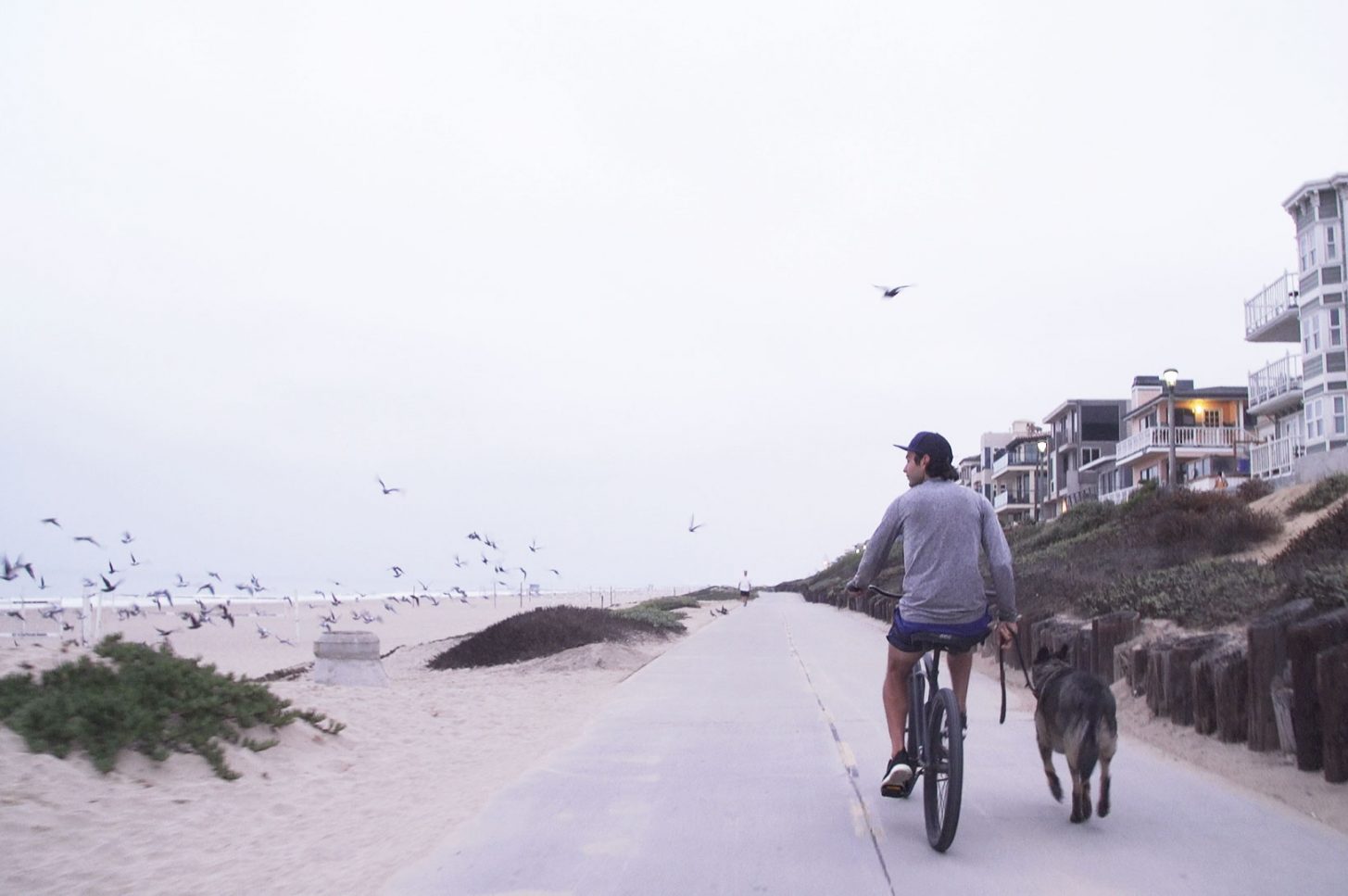
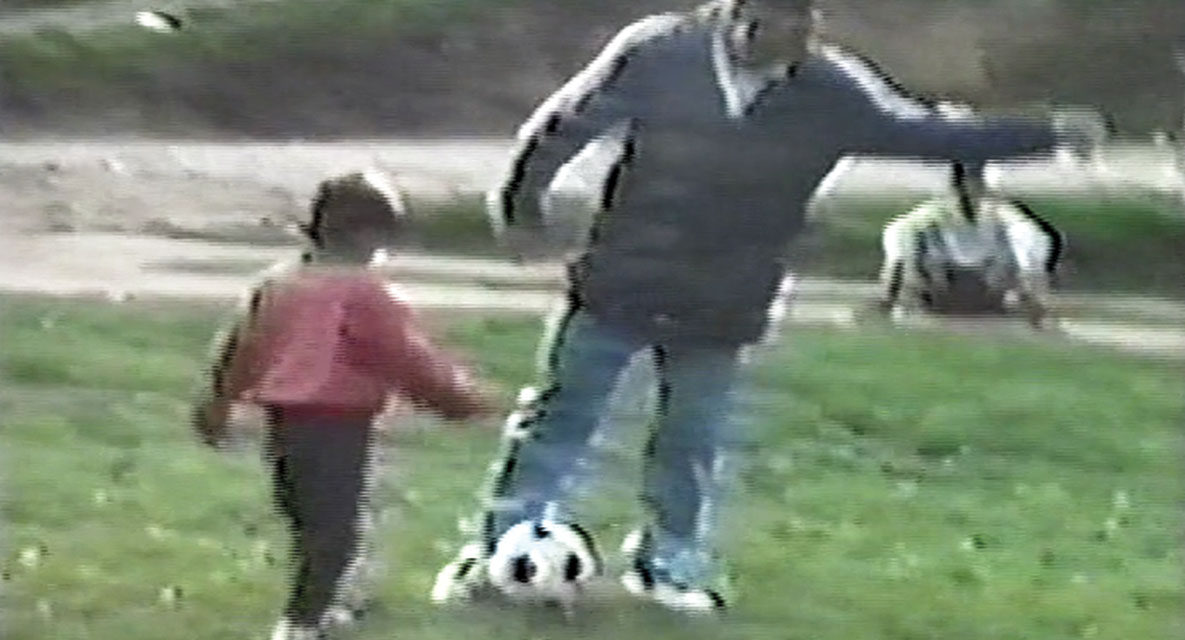
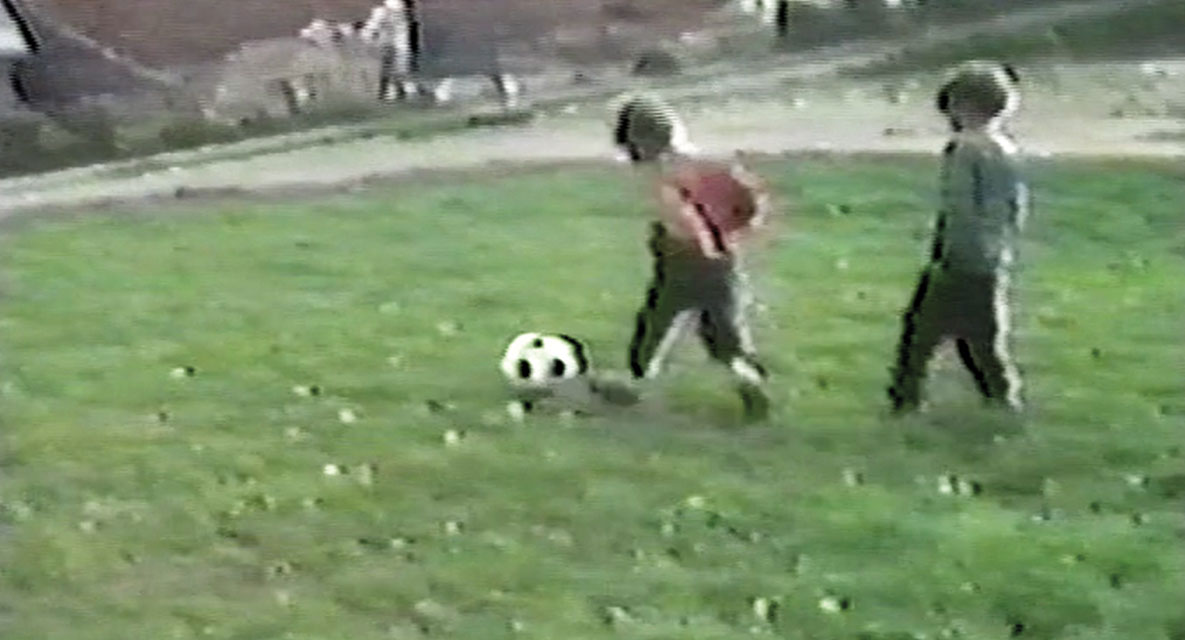
He then signed a contract with Generation Adidas and spent several seasons playing with Chicago Fire SoccerClub before moving on to play in Sweden for Hammarby Fotboll. Baggio planned on remaining in Europe with his fiancée (now wife), Kathleen—playing for various professional teams in Europe—but an opportunity rose to play for the LA Galaxy.
“They were the only team I was willing to come back to the U.S. for,” he says. He joined the team in 2014, and he appeared in every match during the MLS regular season. The Galaxy went on to claim the MLS Cup that year for the fifth time.
Baggio is always mindful of the future. He and his wife gave birth to their first child this fall, and he aims to continue his athletic career with the LA Galaxy. The struggles of the past shaped Baggio, and he hopes to teach his child that through hard work and perseverance, you can overcome. “I don’t want him to suffer like I did,” he says,“but suffering can be a good lesson for people.”
Baggio looks forward to building a home for his family in the South Bay. And when he looks back, briefly, to the past, he says that it all led to this moment—to all his success. He believes that all the suffering and work was worth it in the end. “It sounds cliché, but it led to the person I am today.”
Photographing the Ruins of Southern California’s Forgotten Desert Communities
Check out the haunting images of Ken Lee’s new book.
Two Former Marines Captain a Game Changer in Underwater Athletics
Underwater torpedo, anyone?
A Longtime Angeleno and Former Cowboy Dramatizes the Ranching Dons Who Founded Los Angeles
Navigating the intersection of
Sepulveda and Pico.
Get the Latest Stories




